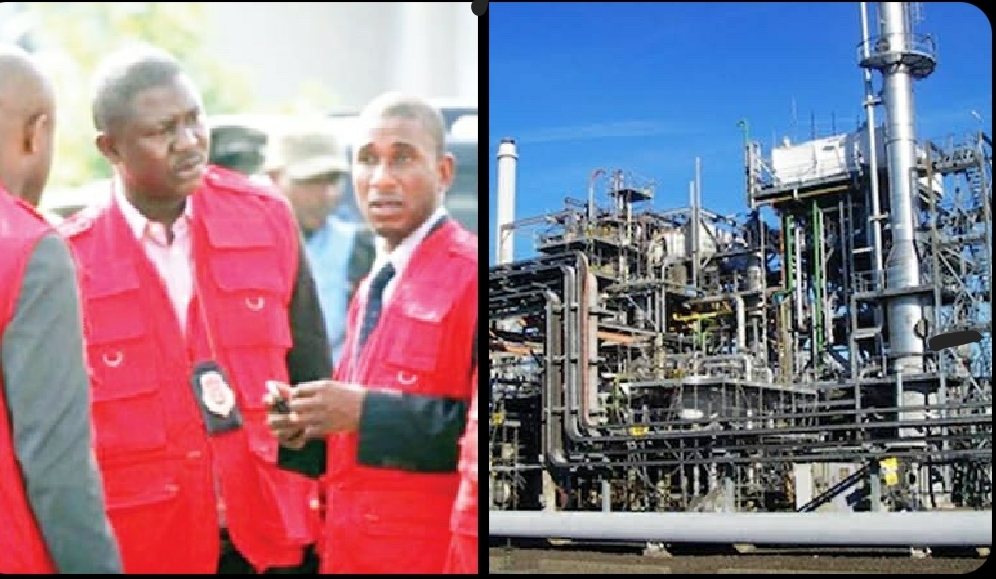
EFCC Recovers Billions in Refinery Fraud as Nigeria’s $20bn Maintenance Scandal Exposed

Nigeria’s long-running refinery maintenance scandal has taken a dramatic turn as the Economic and Financial Crimes Commission (EFCC) announced the recovery of over N5 billion and $10 million from contractors and officials implicated in fraudulent turnaround maintenance deals.
The funds, tied to the infamous $1.56 billion, $740.67 million, and $656.96 million allocations for the Port Harcourt, Kaduna, and Warri refineries, have reignited public outrage over decades of over-invoicing, inflated contracts, and deliberate sabotage that left the nation’s refineries comatose despite staggering public investments.
The revelations point to a systemic rot that has defined Nigeria’s oil sector for years. A 2023 World Bank report estimated that the country loses between $4 billion and $8 billion annually to corruption in the petroleum industry, and the EFCC’s findings appear to fit squarely within this grim pattern.
With both past and present leadership of the Nigerian National Petroleum Company Limited (NNPCL) potentially implicated, the scandal raises uncomfortable questions about whether corruption has been deliberately embedded into the very structure of the sector.
Since 1999, Nigeria has poured over $20 billion into refinery rehabilitation, yet the nation remains one of the world’s largest importers of refined petroleum products.
A 2019 PwC audit revealed that only 20 percent of funds earmarked for refinery projects actually reached their intended use, with the rest vanishing into a black hole of inflated invoices, ghost contracts, and political patronage.
This aligns with the EFCC’s latest recoveries, suggesting that the recent revelations may only scratch the surface of a deeper, entrenched culture of fraud.
What makes the scandal even more damning is the human cost. Nigeria, Africa’s top oil producer, continues to face fuel scarcity, soaring pump prices, and crippling subsidy expenditures—all while its refineries lie idle and funds for their revival are systematically looted.
The dependence on imports has enriched foreign refiners at Nigeria’s expense, while ordinary citizens bear the burden of skyrocketing living costs.
Analysts say the EFCC’s recovery is significant but pales compared to the scale of the heist that has robbed Nigeria of functional refineries for decades.
For many Nigerians, the real test lies not just in recovering stolen funds but in prosecuting those responsible, no matter how highly placed. Until then, the recovered billions risk being seen as mere drops in the ocean of corruption that has kept Nigeria’s oil wealth out of reach for its own people.


